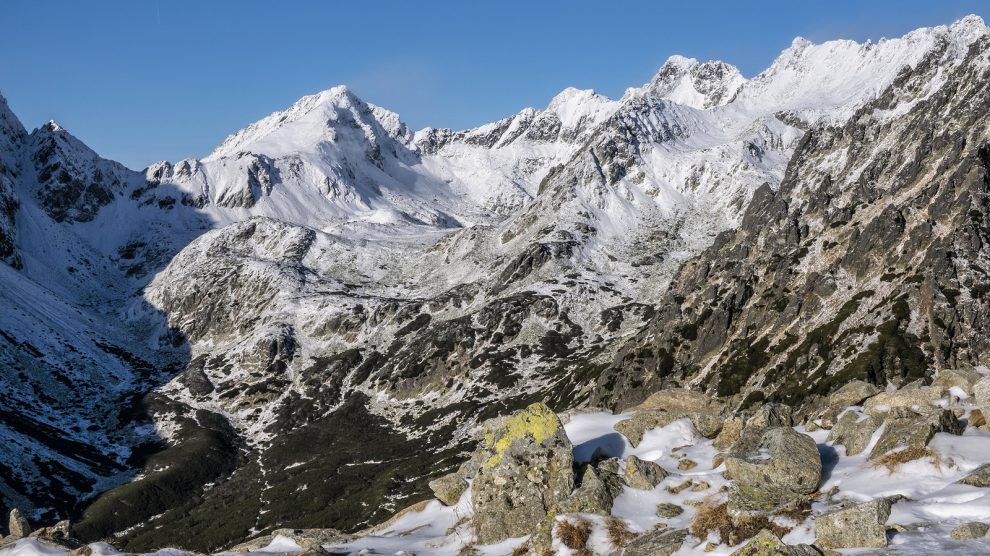Our weekly digest of articles about emerging Europe published elsewhere this week, all of which caught our eye and all of which are well worth your time. Listing them here, however, does not necessarily mean that we agree with every word, nor do they necessarily reflect Emerging Europe’s editorial policy.
The last sherpas of Europe
In Slovakia’s High Tatra Mountains, porters still carry large loads of up to 100kg up and down rugged and dangerous mountain trails using skis, crampons and chains.
Events in Czechia and Belarus cement Eastern Europe’s new divide
A fresh wave of sanctions against Russia won’t just sound the death knell for the prospect of selling the Russian Covid-19 vaccine to Europe. It will also likely affect areas in which cooperation has so far managed to continue, in particular the energy sector. It’s hard to imagine in the current circumstances how the Nord Stream 2 pipeline — even if completed — could become fully operational.
Armenia’s reformers struggle on
It was always likely that Armenia’s attempts at democratic consolidation would be difficult, particularly because of the need for some unpopular reforms. Since last year’s war with Azerbaijan, hopes that the 2018 revolution will fulfill its promise are fading – but it’s not too late for change.
Activity at recaptured church in Azerbaijan raises concern
The Twitter account for Caucasus Heritage Watch on April 19 shared satellite images apparently showing several vehicles parked next to the Vankasar Church in Azerbaijan’s Agdam district. The region was recaptured from Armenian forces during last year’s conflict over Nagorno-Karabakh. The imagery has some fearing that the ancient monument faces “erasure” after its recapture by Azerbaijan.
Migration and its impact on Georgia
Migration from Eastern Europe has soared since the disintegration of the Soviet Union. However, the outflow of such large numbers of people, including a high proportion of young migrants, poses demographic challenges for the successor states, and Georgia is no exception.
The paradox of Poland’s ‘LGBT-free zones’
How did ‘LGBT-free zones’ become the pre-eminent symbols of Poland’s homophobic turn? The story of a slogan from the culture wars that went mainstream.
UiPath is Europe’s most successful tech export since Spotify
A Romanian start-up rides a wave of automation to a blockbuster stockmarket listing.
Suburban composting craze turns industrial corner of Bosnia green
In a suburb outside one of Bosnia’s most polluted industrial towns, a growing army of housewives are battling for the environment armed only with compost bins and food scraps.
Kazakhstan land ban pleases activists but leaves farming with fewer options
Kazakhstan is on the cusp of imposing a permanent ban on the sale and lease of agricultural land to foreigners. It is a rare victory for grassroots campaigning, but may be a blow for a sector in sore need of outside investment and expertise.
In Belarus, firing of Jewish museum curator linked to anti-government protests
Though British actor Daniel Craig popularized the story of the Bielski partisans in the 2008 film Defiance, preserving the history of their heroics in the region where they operated has long been the passion of Belarussian historian Tamara Vershitskaya. But the Belarusian Ministry of Culture fired Vershitskaya and her assistant at the start of this month. The terminations, she said, are clearly retribution for her own association with acts of resistance against the ruler of a country some call the last dictatorship in Europe.
Letter from Yerevan: Creativity offers new hope
When fighting ground to a halt in the region of Nagorno-Karabakh last year, Armenia was forced to grapple with defeat. There was the loss of Armenian-controlled territory, given away to Azerbaijan in a Russian-broken peace deal. There was the loss of people who never came home from the frontlines. And there was the loss of identity and pride — leaving post-war Yerevan to fracture with internal political divides.
Unlike many news and information platforms, Emerging Europe is free to read, and always will be. There is no paywall here. We are independent, not affiliated with nor representing any political party or business organisation. We want the very best for emerging Europe, nothing more, nothing less. Your support will help us continue to spread the word about this amazing region.
You can contribute here. Thank you.



